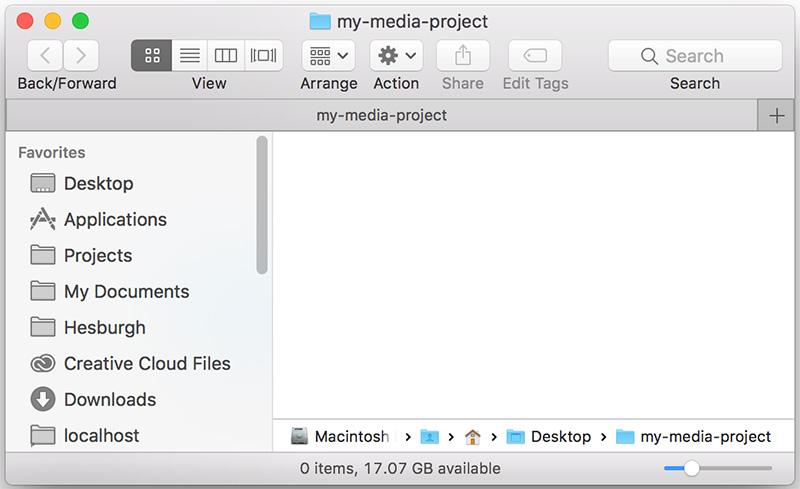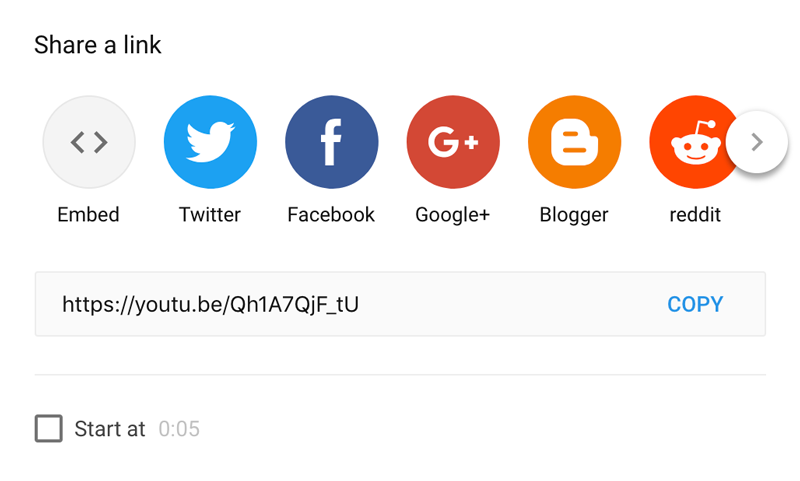Elevator Pitch
Use video to create a concise, persuasive pitch.
There are many moments in life in which you may have only a brief window of time to sell yourself, to explain an idea or opportunity. An elevator pitch is a very brief speech prepared beforehand aimed at helping you explain something or persuade someone when time is tight. In this project you will write your own elevator pitch. You will use video to practice it, and finally share your polished pitch online.
Hesburgh Multimedia Studios- Speech
- Persuasive
- Video
Learning Goals
After you finish this activity you will be able to:
- Produce a video of yourself speaking
- Frame a message for optimum persuasiveness
- Present information concisely and quickly
Follow these steps to complete the project.
To track your progress, click each step as you finish.
An excellent first step in creating any media work is to examine exemplary works of the same type. Make a list for yourself of what makes these examples strong and inspiring.
Don't skip this step!
| 1 | Get inspired by visiting the links in the Get Inspired box. |
By growing your skills in the tools used in any project, you save yourself time and produce stronger work.
| 2 | Peruse any or all of the tutorials in the Tame Your Tools box. |
When beginning a new media project, it's best to organize your resources in a single location.
| 3 | Create a folder on your Desktop named something memorable, such as my-media-project. In this folder you'll organize all your resources for this project. |

Alternate File Storage
You may also organize your documents in cloud storage, such as Box or Google Drive.
In this step, you will brainstorm the elements of your pitch and edit them together into the final pitch. If you haven't already done so, watch The Best Elevator Pitch to learn best practices in pitching.
| 4 |
Decide on the length of your pitch. Common lengths range from 30 seconds to 120 seconds. In The Mirror Test (2010), Hayzlett and Eber recommend 118 seconds—the length of the average New York City elevator ride.
|
| 5 | Now let's brainstorm! Use the List Creator below to make a list of the elements for your pitch. Imagine you are speaking to any person in your professional field with whom you'd like to establish a professional working relationship. |
- Your name and your education level
- Your professional affiliation — perhaps a prominent student organization, or simply Notre Dame
- What a business relationship with the listener has to offer you
- What a business relationship with the listener has to offer him or her
- An example or story related to the core offer of your pitch
List Creator
- ex., I'm Molly O'Boyle. I'm studying Data Science.×
- ex., I'm the founder and president of a student group for building data visualization apps.×
- ex., Our student group models much of its work on apps produced by your company.×
In this step, you'll reorder and edit the lines you wrote in your brainstorming work, reading them aloud multiple times as you turn them into a real pitch.
| 6 |
Once you have a list of pitch elements, order and edit them using a word processor such as Microsoft Word or Google Docs. Remember to move from the general to more specific, starting with introducing yourself, connecting your work to the interests and needs of your listener, and ending with a specific example / story which supports that claim. As you edit the pitch, practice reading it aloud, occasionally. Consider delivering your pitch to friends or colleagues and use their suggestions to make any last minute adjustments. |
| 7 |
Once you are satisfied with the final version of your pitch, practice it until you no longer need to refer to the script. Make sure to save a copy of the polished pitch to your project folder. |
In this step, you'll use the Hesburgh Libraries' Multimedia Studios for video recording to record yourself delivering your elevator pitch. If you haven't already done so, read the Video Recording with the Multimedia Studios guide.
| 8 | Reserve a Hesburgh Library Multimedia Studio. You may reserve the studio in half-hour blocks, up to 2 hours per day. |
| 9 | On the date of your reservation, dress professionally and visit the Hesburgh Libraries' Multimedia Studio on the second floor of the Hesburgh Library. Record your videos to flash drive. Record multiple takes, experimenting with tone and pacing until you have several takes you like. |
Multimedia Studios
Second floor, Hesburgh Library 260, 261, 262
In this step you will upload the .MP4 for the best version of your elevator pitch to YouTube to share with others online.
| 10 | First, review best practices in Uploading a video to YouTube. |
| 11 |
Upload your video, being careful to set the metadata for at least:
We recommend you provide this optional metadata information, where possible or necessary:
|
| 12 | Finally, share your video directly via link, or through social media. |

Congratulations!
You've grown your multimedia literacy while creating cool things! Well done, you!
You might consider nominating work you are proud of to the Remix Project Showcase!
Example

Get Inspired
Explore examples of similar projects.
Tame Your Tools
Master the skills used in this project.
Get Help
Notre Dame has many helpful resources, including our Media Corps coaching staff, located in the Hesburgh Library.
Give Feedback
Remix is continually evolving. Please help us improve by providing feedback on this project or any other feature of Remix.